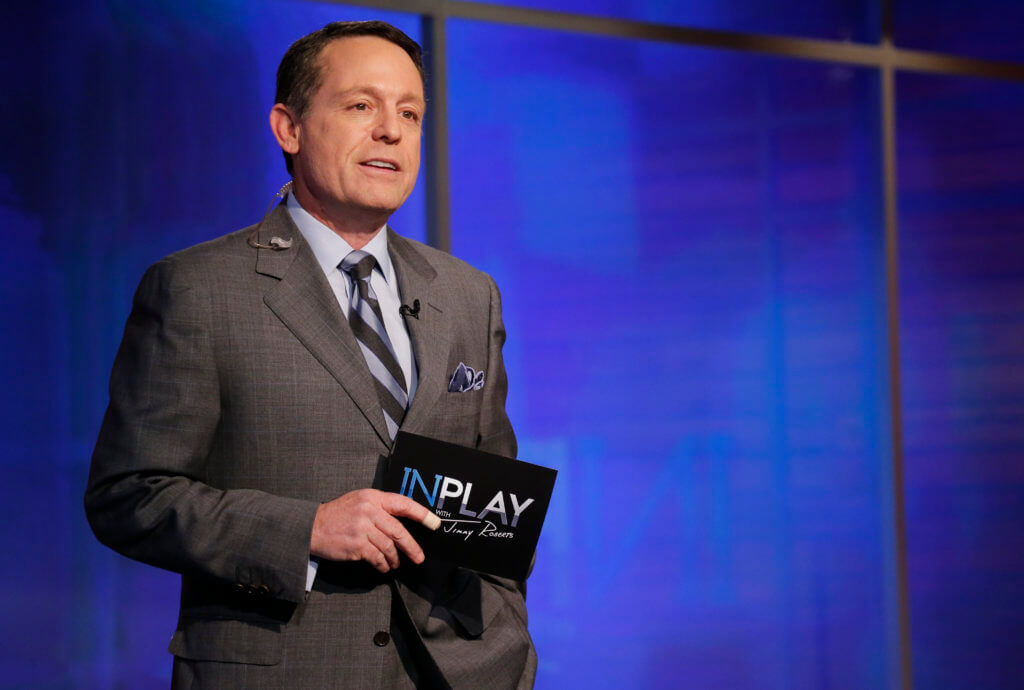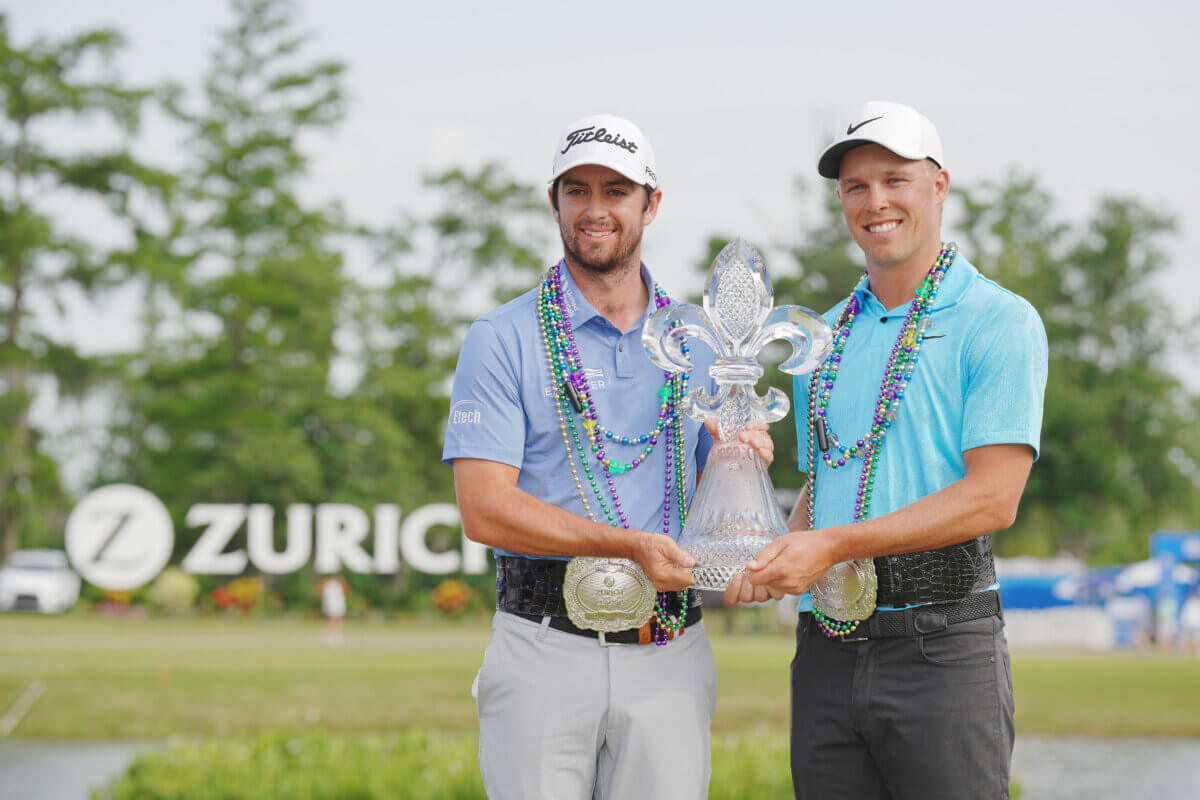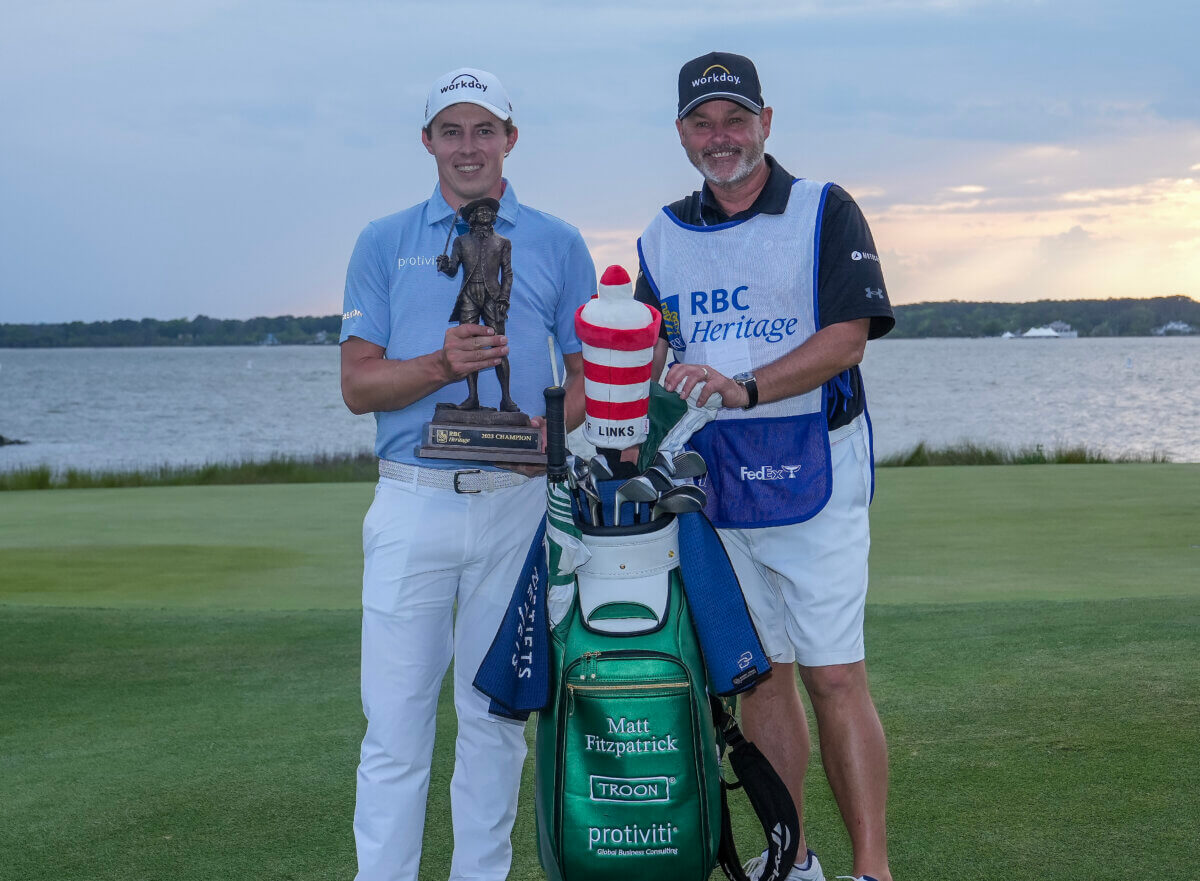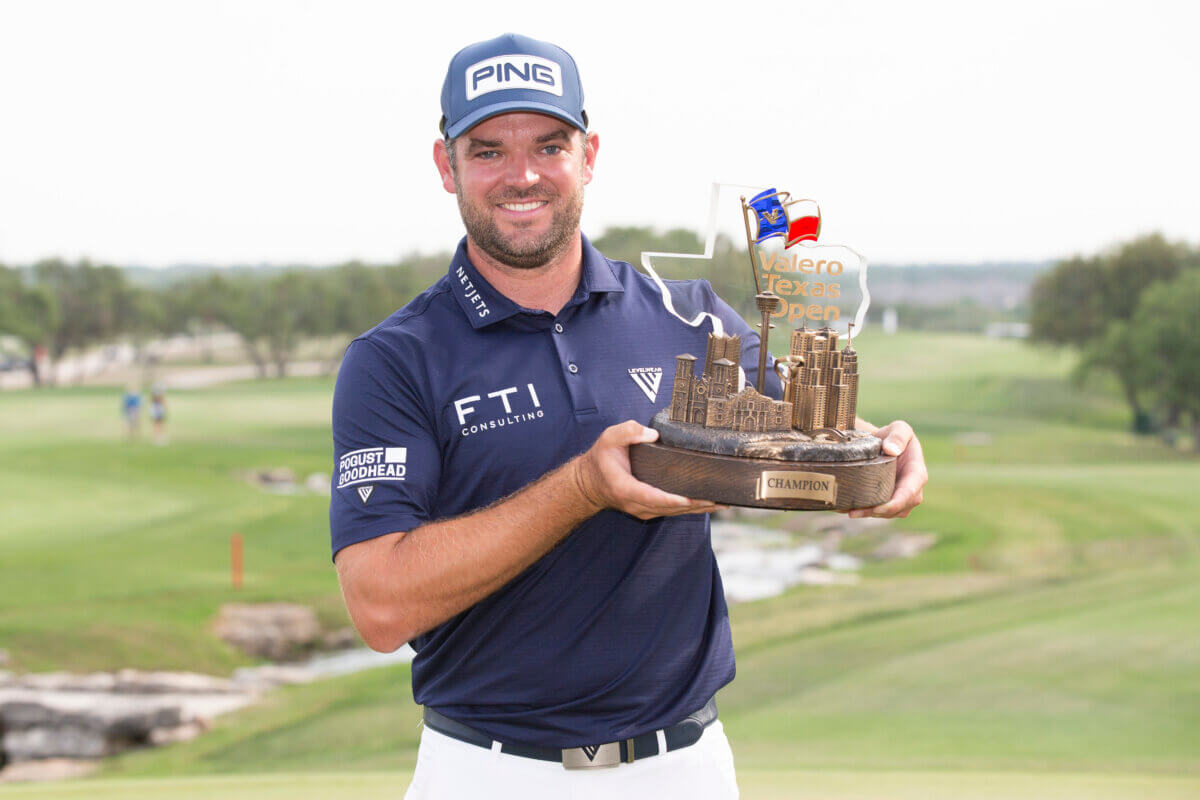NBC/Golf Channel Broadcaster Jimmy Roberts fondly remembers his days as caddie

Jimmy Roberts is one of the more recognizable members of broadcast sports and golf media and he’s been so for over the last 30 years. The 13-time Emmy Award-winning broadcaster for NBC and Golf Channel stays busy covering tournaments as well as hosting Golf Today on Golf Channel on Mondays and Tuesdays.
The White Plains, N.Y. native got into golf through his parents as they both were avid golfers in his younger years.
“They were golfers and so I became a golfer and wasn’t a very good one,” Roberts said. He jokes that he “still isn’t” a good golfer.
Roberts says at one time he got his index to 9.5 and currently plays to a 10.4.
RELATED: 9 reasons why caddying at a country club is a great summer gig
As a youngster, Roberts caddied at three courses in his area: Fenway Golf Club, Ridgeway Country Club and Westchester Hills Country Club.
Fenway was only a couple blocks away from his house and from ages 13 to 16 he looped there and it’s still a sentimental favorite of Roberts, not to mention a gorgeous A.W. Tillinghast design.
“Caddying was a great experience, I learned about the game, I learned about work. I think it really was my first job,” he said. “I had a lot of jobs growing up, I worked on the construction crew, I worked in a luggage store, an ice cream joint, I did a lot of stuff.”
But if he wanted to ensure he’d get a bag for the day, Roberts knew he had to be OK with losing sleep on the weekends.
“With caddying, if you wanted to get a bag it meant that you had to get up early, so that meant Saturdays and Sundays when as a teenager you wanted to sleep late, it meant that you had to get up at the crack of dawn and be in the caddie yard,” Roberts said.
So during these early years, what did Roberts learn from looping?
“You had to learn how to get along with people in a work environment. You had to learn how to take stuff from people that you shouldn’t normally have to take. You had to navigate that, it was great,” Roberts said. “I think everybody should caddie. I think it’s a useful thing.”
He wishes there were more caddie programs available to youth in today’s world.
“I think caddie programs should come back. I know in a lot of parts of the country they don’t exist. Clubs make money renting carts out to the players, so there’s a fiscal element to it,” Roberts said.
After three years looping through much of high school, Roberts gained an understanding of what comes with the job of caddying.
“It’s not an easy job, it’s physically hard, but it’s rewarding,” Roberts said. “I think it’s great. I’d love to see more caddying programs for young kids.”
One might think that Roberts’ experience being a caddie himself would give him a wider perspective on the workload and grind of Tour caddie life. But seeing them in the trenches for over 30 years as a reporter has done that too.
“I had a deeper appreciation for Tour caddies anyway because I see them up close and see what they do,” Roberts said. “A lot of them are terrific golfers who weren’t good enough to play on the PGA Tour. The list goes on and on. Next time you see Kevin Kisner out there, understand that the guy who you see on his bag, Duane Bock, he was good enough to have won the North/South Amateur (1992). That’s a huge event. Go ahead and google the names you see who won that event.”
Some of the winners include Davis Love III, Hal Sutton and Curtis Strange.
“These (caddies) know the game, they really know it. All you have to do is listen to some of our (NBC) telecasts and hear Jim (Bones) Mackay and John Wood, guys who have logged hundreds of rounds with the best players in the world,” Roberts said. “To hear them articulate what’s going on out there and get some perspective is really awesome.”
Roberts feels a strong connection to the caddies on Tour, and he’s formed some lasting friendships with many.
“One of my favorite things I really have enjoyed (in this career) was getting to know as many caddies as I could because so many of them are so salt of the earth and they’ve really helped me,” Roberts said.
“I think when I first started at ESPN, I hope I’ll never forget or lose the gratitude that I have for the way I was treated by Bruce Edwards, who was Tom Watson’s long-time caddie who passed away from ALS,” Roberts said. “When I was out there and didn’t know an awful lot about the game, didn’t know too many people, if I had a stupid question I could always ask Bruce because he never made me feel like a fool for asking it. He was so generous of spirit. And I could go on and on and name these guys. John Burke, Cubbie Burke, another guy I got to know early on. Bones Mackay and I’m really appreciative of how I was treated by these guys and educated by these guys too so it’s part of the game I’ve always enjoyed is those relationships.”
Roberts’ experience has given him a certain level of insight on how crucial the caddies are to their Tour players.
“They’re teammates,” Roberts said. “Joe LaCava was another guy who I became friendly with from the beginning. For some reason in my mind I remember driving back from La Costa when the Tournament of Champions was down there to LAX, a couple hour drive. Joe drove with me and I remember stopping by an In & Out burger on the way back. They’re just like anybody else that you’ve traveled with or spent time on the road with. These guys are teammates, just like the title of the book I’m working on, ‘No One Wins Alone.’ (with hockey great Mark Messier, due out this fall) These guys are teammates. And it’s changed dramatically. This is not the way that it used to be, but it is the way it is now and they truly are teammates.”





